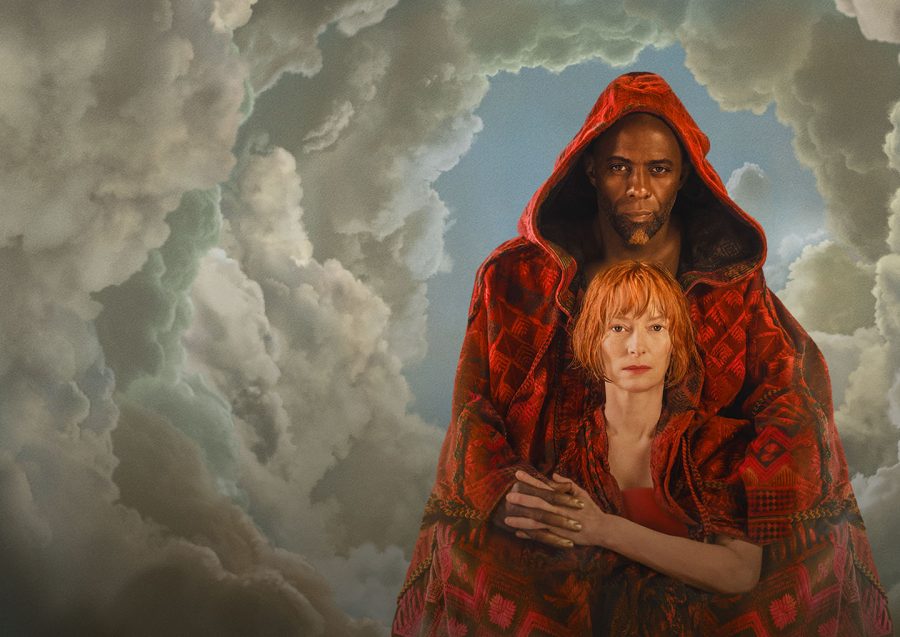Following not only his previous work, as well as the marketing of this film, using such taglines of “from the mad genius of George Miller,” some may walk into a theater for “Three Thousand Years of Longing” expecting a sort of bombast akin to “Mad Max Fury Road.” While there is a sort of madness within the background of his newest film, it’s far more focused within the calm and intimate, a story about stories and the people who need them the most.
The film follows Alithea (Tilda Swinton), a reclusive narratologist (the study of stories) who finds a bottle in a random shop in Istanbul, only to realize that within the bottle is a Djinn, or genie (Idris Elba). What follows is the two simply talking to each other, telling stories about their life, and Alithea trying to figure out what her heart could possibly desire, or even if she truly wants those wishes to come true.
The film is made out of multiple smaller stories told within that hotel room that led them to this point in their life, one told by Alithea but the rest by Djinn detailing his past mistakes throughout the thousands of years he has been within earth. These stories hold the most dazzling spectacle within the film, George’s style of worldbuilding is in full force as it feels entire worlds and history is only a passing aside. Creatures that would take entire scenes to be built up to in other works appear for only seconds, allowing you to envision an entire universe not shown to the audience.
Those who are familiar with stories of Djinn will be aware of how these stories end, a sort of cruel ironic twist befalls those who wish for their hearts desire, but the appeal of the film’s stories is not in its originality or its twists, it’s about the pathos within it. The Djinn and Alithea share a kindred in their love of stories, both of which in some way need it to stay alive, the Djinn in a literal sense of it giving him life, and Alithea in how it’s one of the few ways she’s able to understand emotion. All of the story focuses, in some form, the feeling of being alone in the world, loneliness from past heartbreak and isolation. It’s full of regret, loss, and mistakes made centuries ago he’s unable to forget, even if he wished himself to.
While I personally loved the ending, I am familiar with a lot of people who think it drags on for too long, or at least feels more half-baked than the rest of the film (probably due to covid, like lots of productions made recently, jammed a big spike into it.) And while I can certainly see the complaints, I walked out of the theater with tears quickly wiped away to avoid embarrassment. I give the film a very strong recommendation, especially if you love the more calm moments within “Fury Road.”




